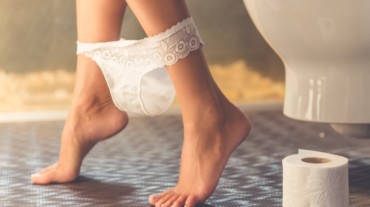Chat with ![]()

Chat with ![]()


Menopause is not an easy ride. And unfortunately, it’s inevitable. However, while hot flashes, mood swings, irregular periods, vaginal dryness, and weight gain are some very common conditions that come with it, menopause can also welcome increased occurence of urinary tract infection (UTI). In fact, according to an expert, there is a strong connection between menopause and UTIs.
And on top of that, the most frustrating symptom of menopause is recurrent UTI.
To know about the causes of menopausal UTIs and how to treat them effectively, HealthShots spoke to Dr Madhushree Vijayakumar, Consultant Gynaecologist, and Obstetrician, Motherhood Hospital, Bengaluru.

UTIs are among the most common bacterial infections in women. They occur when bacteria, yeast, or other microbes from the rectum and vagina enter the urethra and infect the urinary tract. Some common signs and symptoms of urinary tract infections include a strong, frequent urge to urinate, a burning sensation while urinating, urine that appears cloudy and red in colour, poor-smelling urine, and pelvic pain.
Menopause refers to the natural biological process which marks the end of menstrual cycles in a woman’s life. This usually happens when a woman is in her 40s and 50s. A woman is likely to experience irregular periods for years leading up to this stage. This transition period is known as peri-menopause.
While women can get a UTI at any age, women undergoing menopause are at a higher risk of contracting the disease. Here are the causes:
During the peri-menopause stage, women experience hormonal imbalance, which significantly affects their reproductive and sexual health. “As the ovaries produce less oestrogen and progesterone, the fluctuations in the hormone levels cause a change in the uterus lining, which further increases the odds of harmful bacteria entering the vagina,” said Dr Vijayakumar.
Oestrogen is also responsible for helping lactobacilli which are the naturally occurring good bacteria survive in the uterus. Lactobacilli prevents and controls infection-causing bacteria by producing an acid that lowers the pH levels in your vagina. Therefore, a decrease in oestrogen levels leads to increased harmful bacteria, further increasing the odds of contracting UTIs.


Moreover, low oestrogen levels weaken a woman’s bladder and pelvic region muscles. This can also cause urinary incontinence, the frequent and uncontrolled leakage of urine, which is one of the most common symptoms of UTI.
Dr Vijayakumar said, “Another common reason for getting infected is being sexually active, as it can transfer bacteria from the rectum and vagina to the urethra.”
Some other menopause-induced changes that increase the chances of UTIs are vaginal dryness, vaginal irritation, inability to empty the bladder, and other medical conditions such as diabetes.
Some common tips for a woman experiencing menopause to prevent painful urinary tract infections are common lifestyle changes such as staying hydrated, taking cranberry extracts, showering instead of using bathtubs, and avoiding douching can help prevent all UTIs.
Also, read: If you’re hitting menopause, be ready to face these 6 vaginal problems
Reducing the use of harsh soaps, creams, powders, or any form of spray near the genital area that may cause inflammation and irritation is also recommended.
Another tip that sexually active women should follow is to always remember to urinate before and after sexual intercourse as it can reduce the risk of UTIs.

All women should follow these tips, irrespective of whether they have reached the menopause stage.
If women continue to experience painful symptoms of UTIs, they are advised to consult a medical professional. During diagnosis, doctors usually take a urine sample to identify the bacteria causing the infection.
“In the post-menopause stage, most women prefer using oral antibiotics to treat UTIs as they are effective and hassle-free. Some other treatments for UTIs caused by menopausal changes are vaginal estrogen creams or rings. They help restore the healthy bacterial balance in your vagina and reduce vaginal dryness,” said Dr Vijayakumar. For mild cases, urinating frequently can also help discard the harmful bacteria from the body.